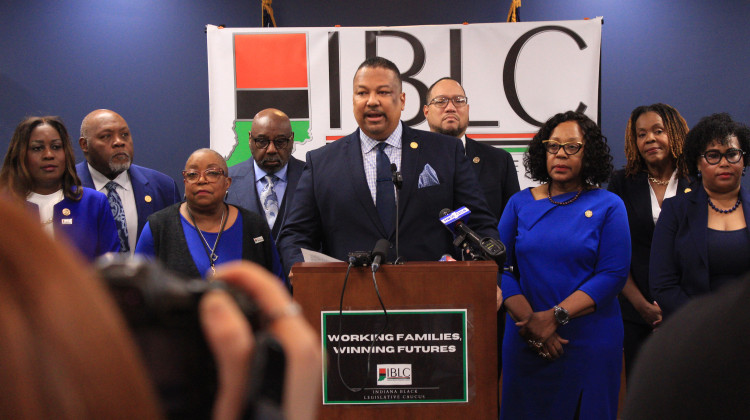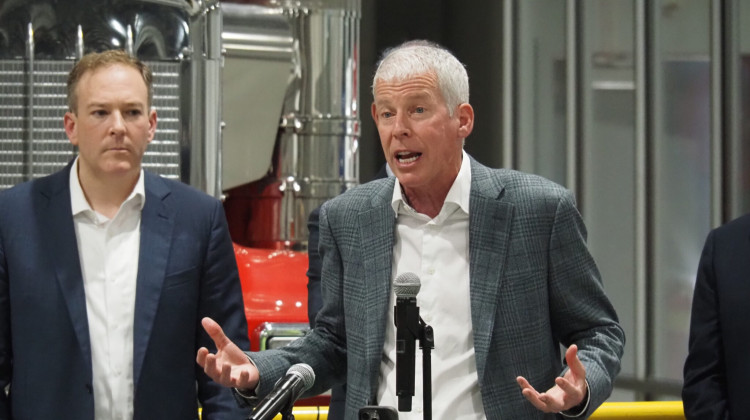
First Church of Cannabis Founder Bill Levin, gestures during the church's first service in Indianapolis, July 1.
AP Photo/Michael ConroyINDIANAPOLIS -- Indiana’s highly-publicized First Church of Cannabis is going to court, hoping to stop the state from enforcing marijuana laws when it comes to the use of cannabis in its church services. The church’s attorney says he will use the Religious Freedom Restoration Act to help his case.
RFRA creates a legal standard that says government must have a compelling reason to restrict someone’s religious practice and do so in the least burdensome way possible. Mark Small, attorney for the First Church of Cannabis, says Indiana’s laws prohibiting marijuana possession and use prevent church members from fully practicing their religion, even if the church itself is new.
“This religious society has beliefs that are rooted in Native American beliefs and in beliefs of long standing, of people here in the United States for generations,” Small said.
Small says it’s hard to buy the government’s argument that it must restrict marijuana use when other states have legalized the practice. Church founder Bill Levin says while the lawsuit proceeds, the church will continue its services without marijuana.
“We’ll celebrate life’s great adventure with love, compassion, and joy in our hearts," Levin said. "It’s what we do.”
Among those named in the lawsuit are Gov. Mike Pence, Indianapolis Mayor Greg Ballard, Indiana State Police and the Indianapolis Metropolitan Police Department.
 DONATE
DONATE






 Support WFYI. We can't do it without you.
Support WFYI. We can't do it without you.